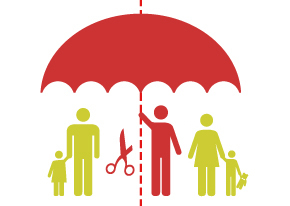
0844 939 0066
Non-married separations
Couples who choose not to marry may still need legal advice when they begin living together or if they separate. This advice can take the form of preparing cohabitation agreements and the making of Wills at the beginning of a relationship, or guidance in relation to property and children in the event of a separation.
If agreement via negotiation is not possible, court proceedings can help resolve any dispute. It's possible to apply to court for an order for sale of a property and a declaration of the shares in which you and your former partner own a property together.
How we can help
Our Leeds based Family Law team will negotiate financial settlements on your behalf and represent you in court proceedings if needed.
Even if a property is not in your name, you may still be able to make a claim. Our family lawyers can advise you about the options available in all disputes including children, property and other assets.
We will offer you practical, sensible advice every step of the way to ensure you can move forward with your life following the breakdown of your relationship.
Questions & Answers
Q: What is a cohabitation agreement?
A: This is an agreement drawn up before two people begin to live together, to set out what should happen to their finances in the event of a separation.
Q: If I live with my partner for over two years but we have never marry, are we common law husband and wife?
A: No, there is no such concept in law as 'common law husband and wife'. Your position is very different in law when you are not married. When a married couple separate, the court has discretion when making orders relating to the sharing of assets from a marriage.
When a couple is not married, the court applies strict property law and equity. An unmarried person cannot claim maintenance from the other party for their own benefit, although maintenance for any children is still payable and is calculated by the Child Support Agency if agreement cannot be reached.
Q: If my name is not on the title deeds does that mean I cannot benefit from a property?
A: Not necessarily, you may still be able to make a claim if you can prove that you have contributed to the purchase price of the property or have increased the value of the property in some way, and if it was agreed that you would benefit. This is a complex area of law and you should contact us for advice..






